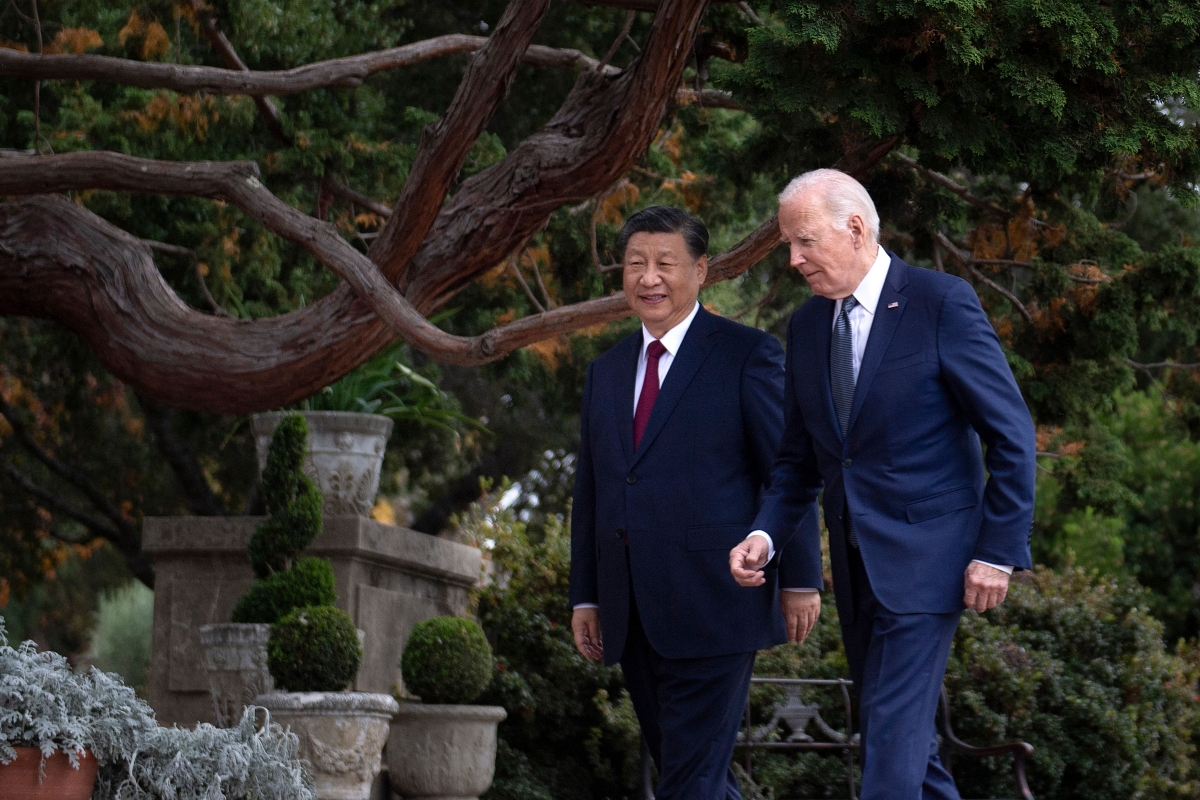Analysis on U.S.-China Sunnylands Statement

By Li Shuo
Background
On November 14th, the United States and China jointly issued the "Sunnylands Statement on Enhancing Cooperation to Address the Climate Crisis'' (English and Chinese version). The statement, released a day before President Joe Biden and Xi Jinping's meeting on the sidelines of Asia-Pacific Economic Cooperation (APEC) and less than three weeks before the United Nations (UN) Climate Conference COP28, is the culmination of a series of recent U.S.-China climate engagements, including U.S. Climate Envoy John Kerry's Beijing visit in July, California Governor Gavin Newsom's climate-themed China trip in October, Chinese Climate Envoy Xie Zhenhua's meetings with Kerry at Sunnylands in early November, and the release of China's long-awaited methane control plan.
The Sunnylands outcome is in line with the broader bilateral agenda to stabilize the U.S.-China relationship ahead of the just concluded Biden-Xi summit and to make progress on issues where the two sides have shared interests. Specifically, the statement intends to resume broader U.S.-China climate dialogues after much disruption as a result of the "climate suspension" in August 2022 and the "balloon incident" in early 2023.
Analysis
Building on the Shanghai joint statement and Glasgow joint declaration reached in 2021, the Sunnylands statement is a comprehensive climate deal between the U.S. and China after long and extensive negotiations. Its delivery, at the climate envoy's level, underscores the significant role the Chinese and American climate envoys play in aligning the interests of the two largest emitters in the world. At the summit between Presidents Biden and Xi on November 15, Kerry and Xie's effort was "welcomed" by both leaders.
Unlike the U.S.-China joint statements made during the Obama-Xi period, no groundbreaking domestic commitment was made by either side. This confirms the limited political space each country enjoys at home as well as the constraining impact of their bilateral relationship on climate progress. That said, critical domestic, bilateral, and multilateral issues are addressed in the statement. The U.S.-China agreement will play an important role in shaping (and stabilizing) the political environment at COP28 and the global climate agenda going forward.
Two issues see notable progress. First, China confirms its intention to develop economy-wide 2035 climate targets (NDC) which will include all greenhouse gases (paragraph 21). So far, China has kept a level of ambiguity on its climate targets. The Sunnylands commitment will help clarify the sectorial and greenhouse gas coverage of China's future targets, putting it on par with developed countries for the types of targets pledged. China's commitment will also help improve the transparency of its commitments and make tracking progress easier.
Second, for the first time, China is willing to openly contemplate "post-peaking" absolute emission reduction in the 2020s for its power sector (paragraph 6). Beijing has only committed to peak its carbon emissions before 2030. The willingness to discuss "post-peaking," even if it's limited to the power sector, indicates growing confidence in early peaking (which is confirmed by independent analysis) and the readiness to consider China's emission trajectory after the peak point — a critical issue for the world’s climate future.
Additionally, the U.S. and China express support for the global target to triple renewable energy capacity by 2030 (even though they did not commit themselves to triple) and on the basis of "accelerate renewable energy deployment" at home to "accelerate the substitution for coal, oil, and gas generation." The Sunnylands statement does not address energy efficiency, an ongoing discussion in the hotly debated energy transition package at COP28.
A large number of thematic dialogues, many of them disrupted by bilateral political turbulence over recent years, are to be re-established or initiated. Ensuring smooth and sustained communications so that these dialogues could lead to concrete progress will be key for 2024. The most notable dialogue outcomes mentioned in the statement are:
Operationalize the Working Group on Enhancing Climate Action in the 2020s which will include energy transition, methane, circular economy and resource efficiency, low-carbon and sustainable provinces/states & cities, and deforestation, as well as any agreed topics;
Restart the U.S.-China Energy Efficiency Forum to deepen policy exchanges on energy-saving and carbon-reducing solutions in key areas including industry, buildings, transportation, and equipment;
Recommence bilateral dialogues on energy policies and strategies, carry out exchanges on mutually agreed topics, and facilitate Track II activities to enhance pragmatic cooperation;
Conduct a policy dialogue on circular economy and resource efficiency;
Hold a high-level event on subnational climate action in the first half of 2024;
Initiate technical working group cooperation on policy dialogue, technical solutions exchanges, and capacity building, building on their respective national methane action plans to develop their respective methane reduction actions/targets for inclusion in their 2035 NDCs and support each country’s methane reduction/control progress;
The United States and China, with the United Arab Emirates, invite countries to a Methane and Non-CO2 Greenhouse Gases Summit at COP28.
Finally, in broad strokes, the Sunnylands Statement addresses a number of COP28 issues under the umbrella of the Global Stocktake. The statement highlights the need for recognizing positive progress achieved, a balanced outcome across thematic areas, and more ambition and implementation on both action and support. It also recognizes the importance of energy transition, adaptation, finance, and loss and damage. Critically, the point on “international cooperation” will help manage the tensions associated with trade and industrial policies of various nations at COP28.
Next Steps
Overall, the Sunnylands Statement sets broad boundaries for the anticipated debates at COP28. Bilateral alignment ahead of the COP provides an “insurance” to the UN climate conference. But many COP issues are only lightly touched upon in the statement, leaving much hard work for all nations when they convene later this month in Dubai.
The leader’s Summit at the beginning of COP28 (December 1-2), the recently scheduled EU-China Summit (December 7-8), and the COP28 end game are subsequent opportunities to assess China’s political will on climate change as well as the U.S.-China climate dynamic.
